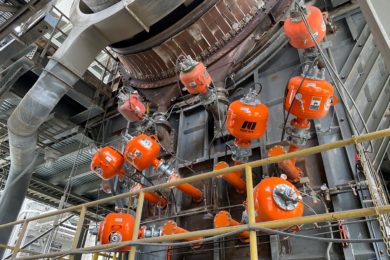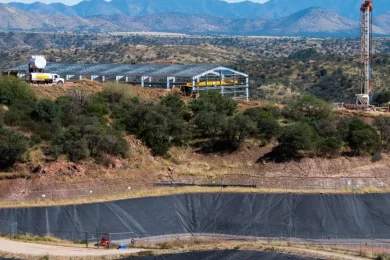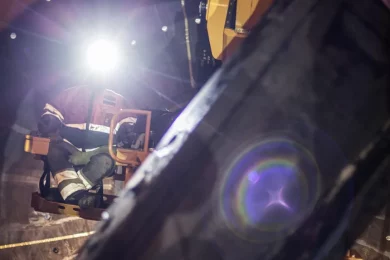In a recent article, Ivan Perminov, Head of International Business Development at Zyfra’s VIST Group, argues that the fact that China is no longer just a global factory with cheap labour has been known to international business for some years now. He states: “Yet not everyone is aware that the People’s Republic of China is turning into a high-tech enterprise seeking to actively implement innovations in various spheres of production. According to the research company CB Insights, while in 2017 China accounted for only 10% of transactions in the field of artificial intelligence, last year Chinese startups attracted more than 40% of dollar investments in the global AI market.”
“Whereas in the US, a number of investors are becoming disillusioned with investments in AI startups, the China Institute for Science and Technology Policy at Tsinghua University has published a report stating that China has gained a head start over the US as the ‘two giants’ race into the fourth industrial revolution, having secured a leading position in the AI market in both technology development and applications.
Perminov says that one serious disadvantage currently faced by China is the limited number of areas, relative to the US, in which AI can actually be applied. According to a report by McKinsey & Company, most Chinese AI startups are in the fields of robotics, healthcare and chatbot creation, while the Chinese economy lags behind in the development of business intelligence, sales and management (CRM) systems. This is an important indicator for potential customers in the industrial environment, as smart automation systems are becoming popular in large enterprises.
“The development of the Chinese AI market is being hampered by a number of factors, especially by the great Chinese firewall, which shuts the Chinese Internet off from the global virtual network. Restrictions on the use of government data for AI systems and the difficulty of cross-platform exchange between Chinese IT giants are also having a negative impact on technology companies. However, the Chinese authorities are seeking to expand the country’s AI ecosystem, including by means of industrial policy. A target of universal automation of mining enterprises, in which people will be replaced by machines, has been set in the 13th five-year plan for economic and social development of the People’s Republic of China. In guidelines issued by the Ministry of Science and Technology and the Ministry of Natural Resources, industrialists are encouraged to make extensive use of communication, sensor and information technologies to roll out automatic monitoring and control of the entire mining process. International Data Corporation notes that the Chinese artificial intelligence market reached $1.76 billion in 2018 and could grow to $11.9 bn by 2023.”
Computer vision technology is an area of great promise for the mining industry today, and Chinese companies are estimated to have invested $750 million in this sphere last year alone. Machine learning, as one of the key AI technologies, is also being implemented in the production environment to create forecasting systems in enterprises. “This significant progress in China’s AI sector has been primarily due to Chinese Internet giants such as Baidu and Alibaba, but there is now quite an open market environment that requires application solutions in many areas of activity. Foreign companies are beginning to study the Chinese market and offer their solutions to industrial companies in that country.”
Since last year, China Shenhua Energy, one of the world’s biggest coal companies, has been upgrading its production operations with the help of KanKan, an AI technology develop owned by US corporation Remark Holdings, Inc. By deploying AI technologies the mining giant aims to optimise management of its employees and improve mining safety standards.
Face recognition, gesture recognition and employee movement tracking technologies are also being implemented in business processes. The most striking illustration of the fact that Chinese companies are not wasting money by investing in innovation is provided by mortality statistics in mining enterprises. According to data released during the national conference on safety in the coal industry, the number of deaths in coal mines in China fell by 13.1% in 2018 to 333, while the total number of incidents was down 0.9% at 224. And most of the accidents that did occur killed less than ten people. For comparison, 2,500 Chinese coal miners were killed in 2010.
Chinese manufacturers are trying to keep up with the introduction of unmanned vehicles based on AI. Inner Mongolia North Hauler Joint Stock Company, the manufacturer of trucks for mines and quarries, recently unveiled an autonomous dump truck which will start operating in mines in 2019. Equipped with a GPS receiver, an obstacle detection system and a communication system using the 5G standard, the vehicle can move independently along a pre-set route or receive commands from the control centre. Acording to the manufacturer, research shows that seven unmanned vehicles can perform the same amount of work as nine trucks with human operators with a 6% cut in fuel costs and a 49% efficiency improvement.
“Pilot projects for the digitalisation of the mining industry could in future be integrated into a common data exchange platform to create fully automated mines running AI. A number of leading manufacturers and research institutes in China are currently working together to create such an IT platform. Traditional industries in general, not just mining companies, need to be aware that Chinese state investors have declared a policy of developing innovative sectors of the economy. For example, the State Development & Investment Corp, China’s biggest state investor, has announced its withdrawal from the coal business and a new focus on the social sphere, including medicine and healthcare, as well as the development of bioengineering, AI and chip production. If they don’t want to lose state support, China’s heavy industry companies will have to start innovating, whether they like it or not.”
The image shows International Mining Editorial Director Paul Moore at Inner Mongolia North Hauler’s factory in Baotou with one of its autonomous trucks in April 2019










